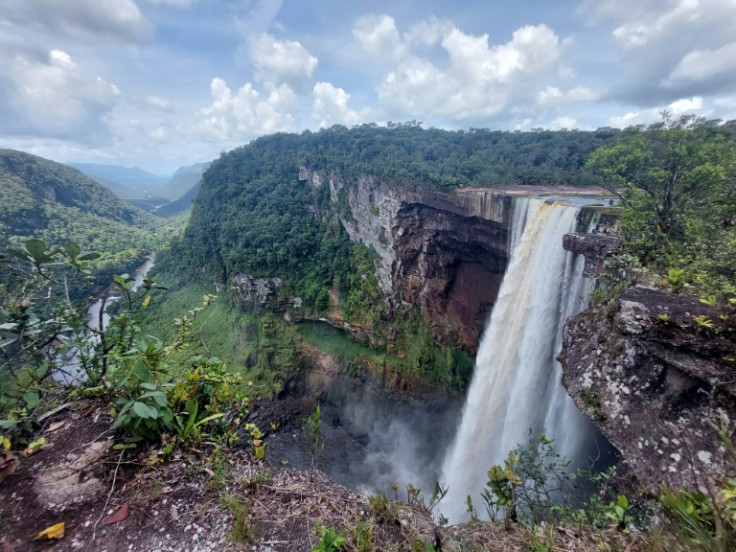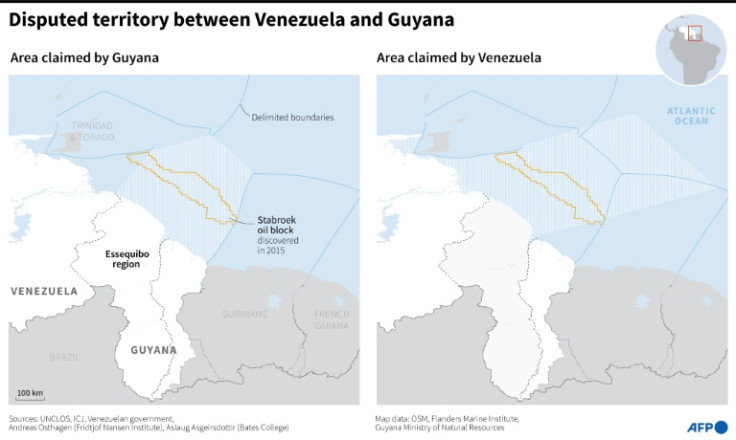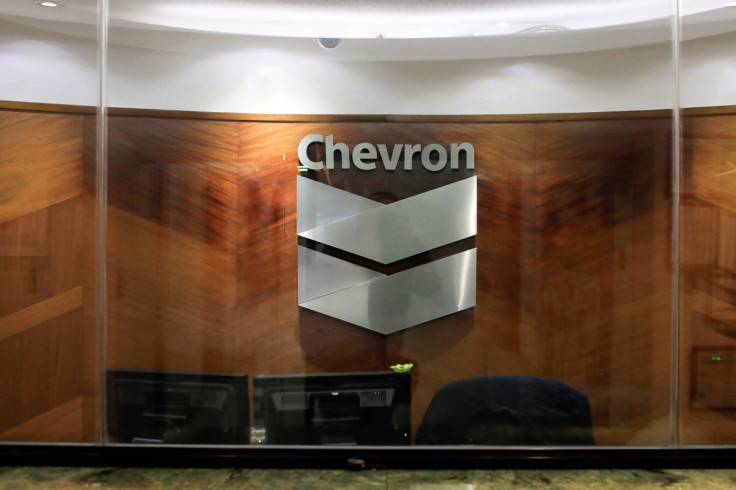
Venezuelan President Nicolás Maduro is currently amassing armed forces along the border with Guyana following a controversial referendum to annex 74% of the country's land area, greatly complicating the long term positions of ExxonMobil and Chevron in the region.
Sunday's referendum to annex Guayana Esequiba (Essequibo in English), a sparsely-populated territory home to and the vast majority of Guyana's only recently exploited oil resources, passed with 90% support from Venezuelan voters, according to government sources.
An unconfirmed number of Venezuelan troops have reportedly been moved to the border with Guyana since Sunday, as President Maduro has placed the disputed territory under military jurisdiction and announced plans to construct a new base across the internationally-recognized border between the two countries.
On Wednesday, a helicopter carrying seven people, including five top Guyanese military officials, went missing near the Venezuela-Guyana border—Guyanese authorities stressed that there were no immediate signs of foul play.
Venezuela has 123,000 active armed forces personnel, according to a report from Brazilian outlet Folha de São Paulo; President Maduro also reportedly commands varying degrees of influence in a number of paramilitary organizations throughout the country.
Guyana has a total population just above 800,000, and only 3,400 total military personnel.
US Secretary of State Antony Blinken spoke with Guyanese President Mohamed Irfaan Ali on Wednesday, where he reiterated the US' "unwavering support for Guyana's sovereignty," but did not detail its proposed response to a violation of said sovereignty in a public statement.
President Biden has yet to comment on the matter. Brazilian president Lula bolstered a regiment along his country's border with Venezuela Guyana by 600 troops earlier this week.
Exxon's Guyana Problem

On Tuesday, president Maduro pledged to "immediately" begin oil exploration and extraction in the territorial waters of Guayana Esequiba. This region accounts for the vast majority of Guyana's existing oil production in the offshore Stabroek oil block, which is controlled by a consortium of ExxonMobil (45%), Chevron (30%) and CNOOC (25%), China's second-largest oil and gas company.
ExxonMobil, the project's operator, projected in November that the Stabroek block would reach 1.2 million barrels per day of crude oil output by the end of 2027. Venezuela registered a daily oil output of 735,000 barrels in September, for reference.
Guyana's economy has been the fastest growing in the world since 2019 thanks to nearly exponential expansion in oil production, as the Exxon-operated project continues to open more offshore drilling facilities.
ExxonMobil executives have characterized Guyana's booming oil sector as a "fairy tale" for the company—with the largest stake in the Stabroek block, ExxonMobil stands to lose a significant source of projected revenue growth if military conflict disrupts ongoing operations, and even more so if the Maduro regime moves to expropriate assets in the Stabroek block.
ExxonMobil declined to comment on the matter when asked by International Business Times. "We believe border issues are matters for governments and appropriate international organizations to address," a company representative told IBT on Monday.
ExxonMobil CEO Darren Woods gave a similar message during an interview on Monday at COP28 in Dubai. "We can do what we can do, which is making sure that we're helping the government of Guyana by producing the resources efficiently," he said, noting ExxonMobil's limited agency in the situation.
Chevron's Venezuela Problem
Chevron took a slightly different approach from their US-based rival when asked by IBT about the Guyana dispute.
"Chevron has a long history and excellent record of being a partner of choice in the countries in which we have operations," the company said in a written statement shared with IBT on Wednesday evening. "We always aim to be, and we are a constructive presence in the countries where we operate."
The company did not address the question of Guyanese sovereignty in its comments to IBT, nor has it released a publicly available statement on the matter.

Chevron's 30% stake in Guyana's Stabroek block, which it acquired in just late October when it purchased Hess, is perhaps a less relevant factor in its response to the Guyana dispute than its ongoing operations in Venezuela.
Chevron first opened its offices in Venezuela in 1923, and was responsible for the discovery of the Boscan oil field in 1946. The company remained in Venezuela through former president Hugo Chávez's nationalization of the oil sector in the 2000s, unlike ExxonMobil.
Chevron's joint ventures with state-run PDVSA currently account for 135,000 barrels of oil per day (18% of Venezuela's total production), up 70% from average 2022 levels. In 2024 the company plans to drill two new wells per month in the Orinoco oil belt, adding 65,000 barrels per day in output from operations in Venezuela by the end of the year.
Chevron was the first foreign oil company to receive a sanctions exemption from the US Office of Foreign Assets Control in November 2022, before US sanctions on Venezuela's oil industry were temporarily relieved in October.
Whether Chevron would negotiate with PDVSA and the Maduro regime to maintain its stake in the Stabroek block in the event of a full-scale invasion is not clear—Chevron declined to elaborate further on its initial statement in response to a request for follow-up from IBT.
As major contributors to the economies of both Venezuela and Guyana, Chevron and ExxonMobil's responses to the dispute in the Essequibo region/Guayana Esequiba will be monitored closely as the security situation continues to deteriorate.
CNOOC and the US State Department did not respond to requests for comment from IBT.







